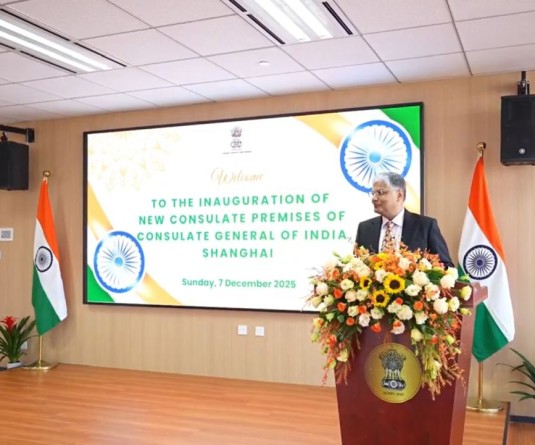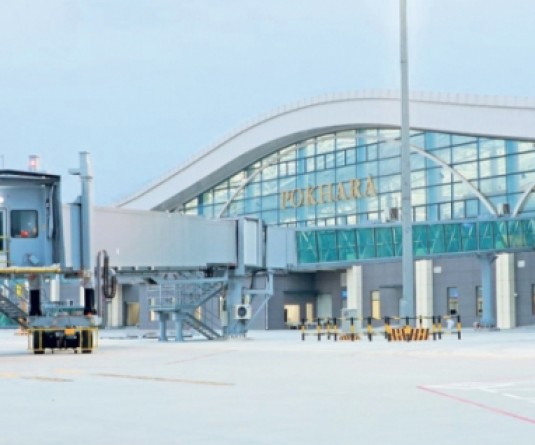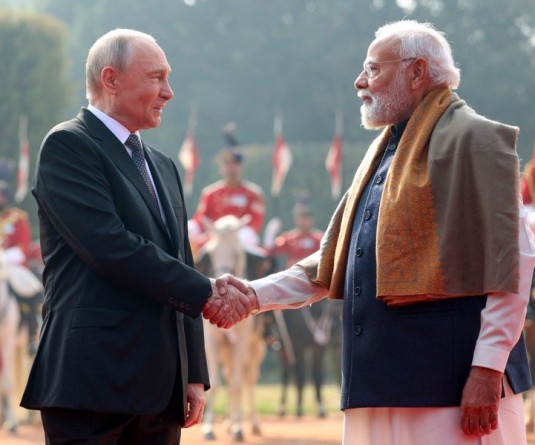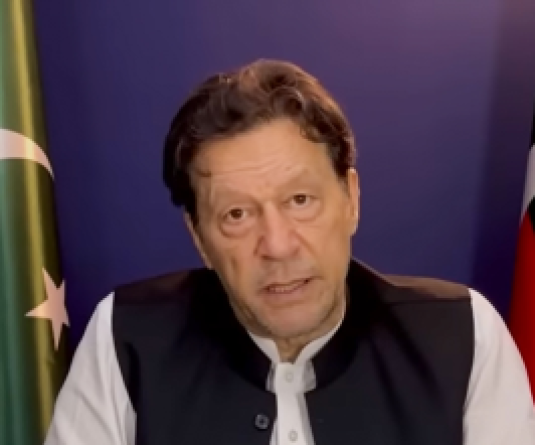
A women cries while attending the funeral of one of 12 children killed the day before in a school shootout in Rio de Janeiro, Brazil on Friday April 8. (AP Photo)
RIO DE JANEIRO, April 9 (AP): Grief-stricken relatives threw themselves upon caskets and wept to exhaustion as Rio buried most of the 12 children killed in a school shooting. The massacre shocked Brazilians — and stoked new calls for stricter guns laws.
Sobbing and embracing family members as she watched the body of her 14-year-old niece Milena Santos Nascimento placed into a tomb, Ana Rosa Nascimento Alves could barely shake off the shock to describe her pain. "Milena was a dreamer," she said. "Unfortunately, this madman came and ended her dreams."
It was the sentiment of a nation that watched repeated funerals Friday, services attended by upward of a thousand people each. A day earlier, 10 girls and two boys aged from 12 to 15 were gunned down inside the Tasso da Silveira public school, most lined up along a wall and shot in the head at point-blank range. The shooter, identified as 23-year-old Wellington Oliveira, killed himself with one of his pistols after being confronted by police. At least 12 other students were injured, two of them reported in grave condition.
A few details began to emerge about Oliveira: He was a good student with a history of psychological problems who attended the Tasso school; he was fascinated with the Sept. 11, 2001 terrorist attacks in the U.S.; he spent a lot of time on his computer watching videos on how to fire weapons. Still, those who knew him said he did not seem the type to carry out such violence. Investigators said that they recovered at least 60 shell casings from the school and that most of those were shot by Oliveira, who witnesses said was firing both of the revolvers he was carrying.
Police said one of the guns used was reported stolen in 1994. The origin of the other was not yet known because the serial number had been filed off. It was not clear how or when Oliveira obtained the weapons. Police found Oliveira's home in disarray — he had burned his computer, apparently in an effort to thwart an investigation. The motive remained unknown, and investigators said it might never be discovered.
Oliveira was one of six children, a man who identified himself as one of the siblings told the Globo television network. The brother said Oliveira was adopted as a baby and had long suffered psychological problems, but he did not elaborate. Oliveira was fascinated with guns, and was "very impressed" with the 9/11 attacks in the U.S., the brother added. "He said, for example, that he had 'a lot of desire to destroy an airplane, like that guy did in the United States,'" said the brother, whose face was disguised at his request because he feared reprisals.
Oliveira attended the Tasso school from 1999 until 2002. He was considered a good student who didn't get into trouble, but who was estranged from the world around him. Vanessa Nascimento, a neighbor of Oliveira, said he was "always very calm and closed." "He wasn't one to make friends. But no one ever suspected he was capable of doing what he did," she said.
Reacting to the attack, congressmen began calling for even greater control over the sale of guns and ammunition in Brazil. "There are mental health issues related to this tragedy, but it is also clear that if the access to weapons and ammunition were not so easy, the result would have been different," Congressman Alessandro Molon said after visiting the Tasso school. Brazil already has strict gun laws.
Sobbing and embracing family members as she watched the body of her 14-year-old niece Milena Santos Nascimento placed into a tomb, Ana Rosa Nascimento Alves could barely shake off the shock to describe her pain. "Milena was a dreamer," she said. "Unfortunately, this madman came and ended her dreams."
It was the sentiment of a nation that watched repeated funerals Friday, services attended by upward of a thousand people each. A day earlier, 10 girls and two boys aged from 12 to 15 were gunned down inside the Tasso da Silveira public school, most lined up along a wall and shot in the head at point-blank range. The shooter, identified as 23-year-old Wellington Oliveira, killed himself with one of his pistols after being confronted by police. At least 12 other students were injured, two of them reported in grave condition.
A few details began to emerge about Oliveira: He was a good student with a history of psychological problems who attended the Tasso school; he was fascinated with the Sept. 11, 2001 terrorist attacks in the U.S.; he spent a lot of time on his computer watching videos on how to fire weapons. Still, those who knew him said he did not seem the type to carry out such violence. Investigators said that they recovered at least 60 shell casings from the school and that most of those were shot by Oliveira, who witnesses said was firing both of the revolvers he was carrying.
Police said one of the guns used was reported stolen in 1994. The origin of the other was not yet known because the serial number had been filed off. It was not clear how or when Oliveira obtained the weapons. Police found Oliveira's home in disarray — he had burned his computer, apparently in an effort to thwart an investigation. The motive remained unknown, and investigators said it might never be discovered.
Oliveira was one of six children, a man who identified himself as one of the siblings told the Globo television network. The brother said Oliveira was adopted as a baby and had long suffered psychological problems, but he did not elaborate. Oliveira was fascinated with guns, and was "very impressed" with the 9/11 attacks in the U.S., the brother added. "He said, for example, that he had 'a lot of desire to destroy an airplane, like that guy did in the United States,'" said the brother, whose face was disguised at his request because he feared reprisals.
Oliveira attended the Tasso school from 1999 until 2002. He was considered a good student who didn't get into trouble, but who was estranged from the world around him. Vanessa Nascimento, a neighbor of Oliveira, said he was "always very calm and closed." "He wasn't one to make friends. But no one ever suspected he was capable of doing what he did," she said.
Reacting to the attack, congressmen began calling for even greater control over the sale of guns and ammunition in Brazil. "There are mental health issues related to this tragedy, but it is also clear that if the access to weapons and ammunition were not so easy, the result would have been different," Congressman Alessandro Molon said after visiting the Tasso school. Brazil already has strict gun laws.






